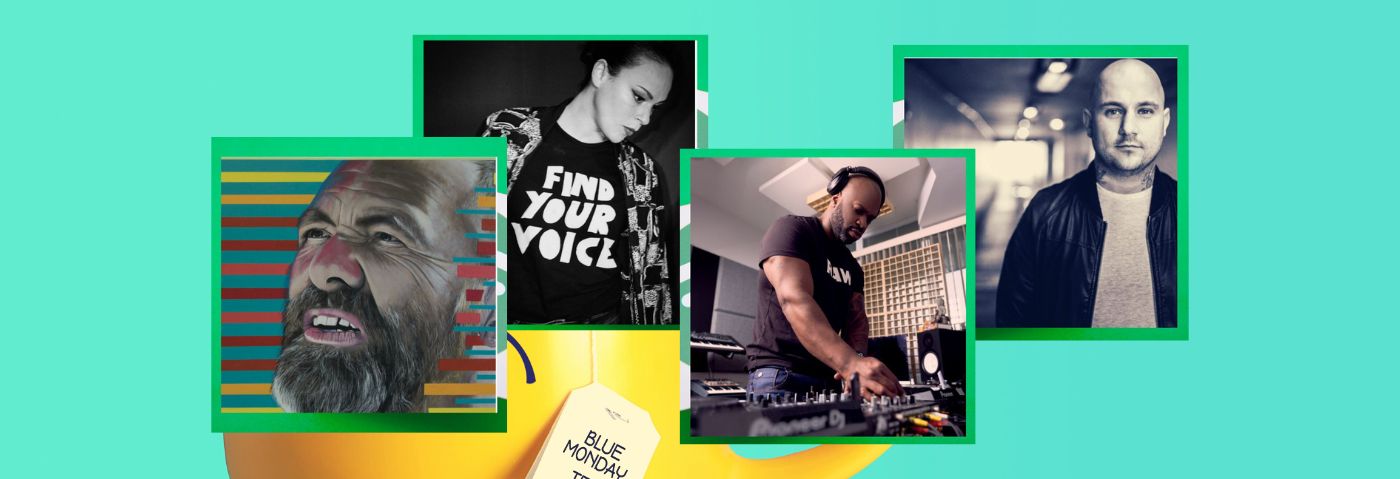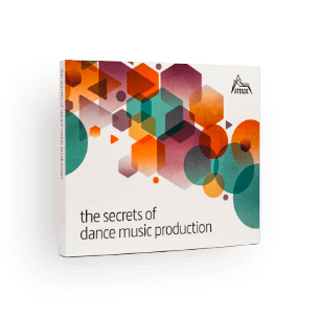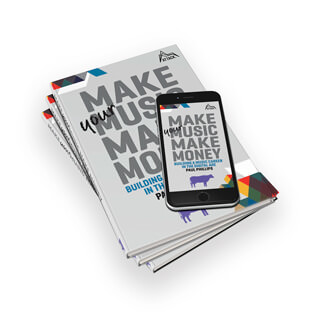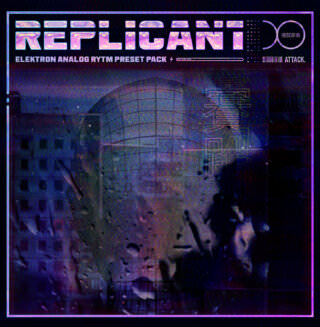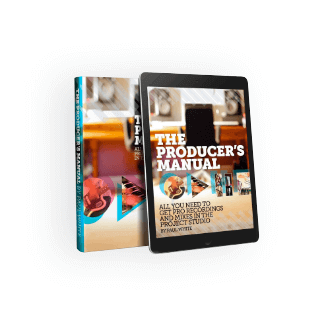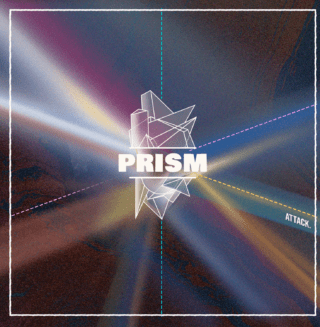A year ago we published a series of articles about artists who had removed their music from Spotify. We caught up with some of them to see if their views, or situation, had changed over the last 12 months.
This time last year Spotify was in the headlines for all the wrong reasons. Artists like Joni Mitchell, Graham Nash and Neil Young had taken their music off Spotify in protest at the streaming platform hosting dangerous Covid-19 disinformation via The Joe Rogan Podcast. House producer Mr V also removed his music from the platform for the same reason, American singer-songwriter India.Arie removed her music because of Rogan’s language around race and Skee Mask removed his music from the platform citing news that Spotify CEO Daniel Elk invested 100 million Euros in defence AI company Helsing. And this was all in addition to the ongoing debate over fair and equitable artist remuneration from streaming that continues to hound Spotify.
At the time, we spoke to a number of producers, artists and label owners in electronic music about their decision to leave Spotify. We caught up with some of them a year on to see what happens when you take your music off Spotify.
If you like this article, you may enjoy our series on artists who have decided to drop using Spotify.
You MUST take advantage of the creator systems (Bandcamp, Patreon, YouTube, Noodle, and Beats Union) that are available to help you in the journey
Demuir
When we spoke with house producer and DJ Demuir (Hot Creations, Rawthentic, Desolat, Moxy, Edible, Sola, Nauts, Bambossa) last year, he was in the process of removing his Purveyor Underground catalogue and as much of his other music as he could from Spotify.

This time last year you were in the process of removing your label’s music from Spotify. Please tell us how that process went and any results, good or bad that you’ve noticed.
Demuir: By the time the article when live, I had easily completed the takedown of my label Purveyor Underground’s catalogue and any music I successfully obtained the masters for. It was a simple takedown request through my distributor. I’ve actually seen revenue increase, but a lot of this was achieved by giving Beatport, our primary retailer, more exclusives of our releases. We make exceptions for new artists to be on Spotify, but most of our catalogue is off the platform and we do well with Beatport and our Bandcamp page.
In the feature, you mentioned Bandcamp, Patreon, Beats Union, Juno, YouTube and Beatport as alternatives. Which has been the most successful for you?
The standouts have been Bandcamp and Patreon from a revenue perspective, but all the platforms empower me with additional revenue streams I had not benefitted from previously. My Bandcamp follower base grows every day and they’re people who are actively seeking out the music and willing to pay and offer more than what’s asked for most of the time. It’s really refreshing to see what I anticipated come to fruition. Patreon has offered a consistent income each month and I even had a few months that were over $10K (USD) stemming from my masterclass products and 1 on 1 coaching solutions I offer people. Keeping with the same momentum, I’ve partnered with a new platform at noodle.shop/demuir that allows deep and comprehensive integration of Adhoc and packaged content under free and subscriber-based tiers. I’m in the process of rolling out my documented, “Mix As You Go” masterclass to the platform, which will be available in late January. The beauty of this is that I can carve out a piece of my content for free and then make the rest available through a subscription.
We are also uploading more content to Beats Union as the site continues to grow nicely.
Overall, this just highlights that artists can do their own thing and profit in good conscience. I haven’t even gotten to the publishing side of things, which is also another great revenue stream when you don’t sign it over to labels that allow Spotify to eat up artist income while only benefitting a few.
In our feature last year you told us “Spotify’s business model simply does not cater to or care about underground electronic music so much.” Do you still feel this is the case?
After watching, “The Playlist” on Netflix, which describes the genesis of Spotify, you can see how desperate they were to get the content and then manage the artist royalty down vs. trying to figure out how they could make it profitable to artists in the end. The end-of-year artist summaries are still a joke and just stroke egos while some of the results are tainted with stream farms. I don’t see anyone in underground electronic music raving about $5 they got for 1 million+ streams now vs. what I saw a year ago. However, more underground electronic music artists have been spending time arguing amongst themselves about how much of a hater some of us are for calling out the atrocity that undermines the value of our content.
Has your position on this issue changed or developed at all in the last twelve months?
No. I would say I have doubled down and have opted to wait for the next disruptor that will make things a bit more tolerable so I can connect the action to the benefit. I can’t do that with Spotify right now. I’m getting more gigs and seeing more revenue, and I own most of my songs. It’s funny that I need to argue, in some cases, how utopian this is.
As poor as the royalty model is, it's pointless not having your work on there
What advice regarding streaming might you offer to young producers and artists who are just starting out?
This may seem contrary to my points earlier, but hear me out. I would actually advise young producers to put a small amount of their content on Spotify (about 10% of what they make). I suggest this because they are of a generation that likely doesn’t download any music and hasn’t seen a vinyl record or CD. Rather, they swap playlists and their audience is likely doing the same whereas my audience is a mix of this generation with a bit more bias to those who know what an mp3 is and have played music “burned” to a CD or USB stick.
So young producers should be where their audience is and then expose/migrate them to the systems that allow them to profit from their content (90% of what they make) that is considered their own platform. This entails a strong presence on Soundcloud (who is offering streaming and playlist type of technology) and Bandcamp (which allows users to access tracks offline)
Do you have anything else to add?
I think artists, young and experienced, should not get discouraged or overwhelmed and just remember that it always comes back to great music. Invest in your craft, work harder than everybody else, and be consistent which will enable your audience will find you. However, you MUST take advantage of the creator systems (Bandcamp, Patreon, YouTube, Noodle, and Beats Union) that are available to help you in the journey.
Steve Cobby
Producer and DJ Steve Cobby (Fila Brazillia, Solid Doctor, The Cutler, Heights of Abraham) took his Déclassé label down from Spotify as an experiment. He’s now back on all streaming services and tells us: “A year away made no difference apart from a drop in revenue from royalties. Which is all I have to pass on to my boys so I wanted them all back in place before I pop my clogs. The experiment was a failure…”

This time last year you told us you “wanted to see if more traffic/customers made their way to my Bandcamp portal”. How did this go?
Steve Cobby: *Crickets*……there was no discernable increase in traffic to my Déclassé Bandcamp portal.
Do you see more artists moving toward a Bandcamp rather than Spotify model like you attempted last year?
I don’t think it’s an either/or situation. Most independents are present on both platforms.
In our feature last year you said “Push-back on Spotify seems to be increasing…It will be interesting to see where they are in a year or so”. Have you noticed any particular changes over the last year around streaming?
I haven’t but industry newsletters are all saying streaming is slowing down.
Has your position on this issue changed or developed at all in the last twelve months?
Not really. I’d planned to remove all my work off streaming services for a year and then re-assess. That was over last March and so I put everything back online again.
What advice regarding streaming might you offer to young producers and artists who are just starting out?
As poor as the royalty model is, it’s pointless not having your work on there.
Do you have anything else to add?
Shout out to my two sons Herbie and Eddie. They’re the ones getting all my royalties when I croak, so it was mainly with them in mind that I reinstated the catalogue.
MIRI
Singer-songwriter, musician and community activist MIRI removed all her music from Spotify because of her ethical concerns about their business practices as well as their remuneration rate for artists.

This time last year you told us you that you’d taken your music off Spotify “when it was announced that CEO Daniel Ek invested €100 million into the defence start-up, Helsing”. Is your music still not on the platform?
MIRI: Yes. It hasn’t felt right to upload my music back up on there. Not an easy decision yet still feels the right one for now.
You mentioned Bandcamp, Sonstream and Resonate as alternatives to Spotify. Please can you tell us a little about how each platform has performed over the last 12 months?
I hadn’t realised Bandcamp had a monthly subscription option for fans since 2015. That option was given another push in the last year to get the word out. I added it to my artist profile. Also last year Bandcamp was ‘acquired’ by Epic Games which was a big talking point. Sonstream are continuing to make improvements on their website and build their music catalogue. I recently filmed some ‘How To Use’ vids for them to use and promote. I really like Resonate. Their website is slick. They seem to be going from strength to strength and building their community. I have one of my tracks, ‘Trends’ available to stream on their site and would like to promote their platform more this year.
the music industry can shut out marginalised folk so as creatives we need to protect ourselves and our interests
You also mentioned the #BrokenRecord campaign for more equitable steaming payments for artists/rights owners. Have you seen any developments with the campaign?
Last year was intense as I was focused on building my workload back up after the lockdowns and keeping that steady. I hadn’t had the head space to follow the campaign as much as I would have liked which brings us back to artists getting paid fairly for streaming would help many independent artists financially even if it was in a small way. I read an interview with Tom Gray in Mixmag’s September 22 edition where he said all the major labels make around a million from streaming every single hour. That’s still sinking in for me. I mean that’s capitalism right there.
Has your position on this issue changed or developed at all in the last twelve months?
As before I’m open to developments and want to see artists paid fairly for streaming on mainstream platforms. I do some freelance work for music organisations and charities that equip young people with music industry knowledge. I’d never say to those young people don’t put your music on Spotify because I completely understand the benefits of artists having music on there. I say that it’s important that we all do our detective work the best we can to see how the mechanics work and then make moves that feel right for us.
What advice regarding streaming might you offer to young producers and artists who are just starting out?
Be aware of how streaming works so that you can look into other ways of monetising your music. Look into how you can use the mainstream platforms to keep building your fanbase and secure opportunities that can benefit your career. Nova Twins, Cassyette and Lynks signed up to play a Spotify-sponsored Misfits 2.0 ‘Anti-Prom’ show in London last year. That’s a great opportunity for artists.
Do you have any other thoughts or observations on the subject?
The music industry gives the impression to the public it’s all about the music and the art. Those within it or who have been shut out from it know it’s all about the money, and that it’s a business. From what I’ve witnessed and at times experienced the music industry can shut out marginalised folk so as creatives we need to protect ourselves and our interests, keep building as a community and strengthen our rights. The Featured Artist Coalition is a UK trade body representing the rights of artists with a small dedicated team that is doing fantastic work.
Scott Diaz
Although UK house and garage producer Scott Diaz (Defected, Simma Black, Armada Deep, Large Music) isn’t anti-streaming in principle, he removed the majority of his catalogue from Spotify, telling us “The convenience is fantastic. But the royalty rates paid to artists are abysmal”.

Has your opinion on this issue changed or developed at all?
Not a great deal. I do feel it’s better to approach it on a case-by-case basis, understanding that some records are just going to be naturally suited to the streaming model. I like the idea of using streaming platforms for discovery and so that’s something that can be used to your benefit as an artist, as and when it suits you. I’m going to be doing more ’underground’, club-based, vinyl tracks this year and so for those types of releases streaming doesn’t really factor into the equation in the same way that a vocal record with a singer does.
How has your Bandcamp page performed in the last 12 months?
Pretty well, I’ve definitely noticed an uptick in sales and I’ve been a lot more active on there. I could be more consistent, but I don’t release tons of music and so that plays a big part. Aside from the financial component, I just love having the ability to instantly share music that day and just have control, basically.
My label is much more of a boutique affair and so I’m really much more concerned with legacy and making stuff that lasts
How have Traxsource sales been for you in the last 12 months?
I think I only self-released 2 or 3 records last year and they did okay. In all honesty, I actually don’t break the statements down by download site/platform. My label is much more of a boutique affair and so I’m really much more concerned with legacy and making stuff that lasts. I guess a caveat to my position is that I’m in the relatively privileged position of having a lot more to my business than just my label and trying to use that to secure gigs.
You said “I’d like to see a shift where we aren’t all so willing to give our music away for free in the name of unquantifiable ‘exposure” – do you see any signs of this shift happening?
I am, actually, but personally for me it’s more around other music activities (such as coaching, mentoring, engineering) so maybe strictly that doesn’t really answer the question. It seems like Patreon is growing all the time, and I’ve just joined a new platform called Noodle, which allows you to create a membership community as well as offer 1-2-1 video calls, mixdown/engineering services, and means you can monetise things like requests for track feedback. So I’m going to roll that out in the next couple of months.
Has the debate changed at all in the last 12 months?
I don’t think so. I don’t think it’s gotten fairer for the artists in that time period. Streaming is obviously fantastic for discovery and as always, it’s down to individual artists to do what they feel aligns with their values.
Words: Harold Heath
